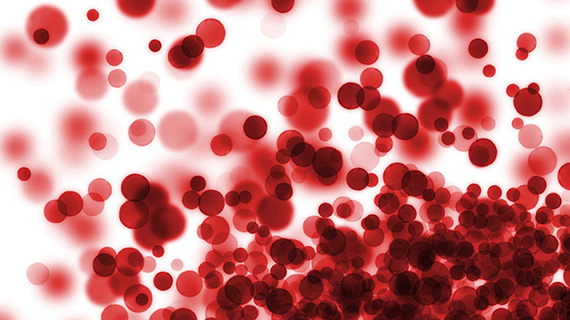On Clinical Trials Day, CVS shares lessons learned from one year providing trial services

CVS Health has come a long way from its humble beginnings as a health and beauty products store in 1963. In recent years the retail pharmacy chain has begun to delve more and more deeply into the healthcare sector – by constantly expanding the basic healthcare services offered at their instore Minute Clinics, and by buying into the health insurance insurance space with their $69 billion purchase of Aetna in 2017.
Last year, the company added clinical trials to the list with the launch of CVS Health Clinical Trial Services, an initiative that works with pharma companies on clinical trial recruitment and even hosts trial sites at certain retail locations.
On the one-year anniversary of the launch, which also coincides with International Clinical Trials Day, pharmaphorum caught up with Josh Rose, CVS’s VP and head of decentralised clinical trials, site solutions, and strategy, to talk about the venture and lessons learned in the first year. This interview has been edited for length and clarity.
Take us back to May 2020. What made CVS decide to enter into the clinical trials space?
Josh Rose (JR): In many ways, it's somewhat of a natural extension of the broader strategy that CVS has in terms of becoming a much more relevant healthcare provider for patients. The unbelievable relationship that CVS has with patients through pharmacy, through Minute Clinic, through Health Hub, is a super strong relationship and one that only strengthened and intensified with COVID, where everybody associated becoming vaccinated and prepared to deal with the pandemic with their visit to a CVS for a vaccine. So if you take that as a foundation, we have a legitimate reason to play in that space because of the familiarity trust that patients have with CVS.
Why is that now important for clinical research? As you know, one of the challenges that exists in clinical research is that while patients like the idea of clinical research, there's a big hurdle for their participation, whether it's challenging for them to get to a clinical site just because of logistics and distance, or whether it's lower trust in investigational research.
When we juxtapose that with what patients think about CVS as a partner in clinical research, it's dramatically different. So that is, in essence, the primary impetus that led CVS to say, okay, let's leverage what we have in order to improve clinical research.
You have a broad audience, which works in your favour. But is there any worry about self-selection bias of the people who use the Minute Clinic?
JR: Let's flip it. What happens today in clinical research is that there is self-selection in traditional clinical research, but it tends to be actually for folks that look more like you and me. They tend to be more educated, more affluent. But in contrast, though, if you look at our national demographics, they look a lot different. They're more diverse, there's different equity. And so I think what happens in traditional clinical research is there's this bias towards folks that are a very small representation of the actual patient community. In contrast, CVS is actually much closer to the majority of patient populations, those that demonstrate and represent the real kind of diversity and demographics that we have. And because of that, we're able to attract them and make clinical research much more appealing and available.
So how does it work? Is CVS a CRO or is it more complicated than that?
JR: No, I think it's less complicated than that. Pharma comes to a CRO and says, hey, we need to find patients and we need to find investigational research sites in order to conduct our study. Whereas we have patients and we have sites, so when pharma comes to us, they don't need to act through an intermediary like a CRO to say, hey, can you go find third parties that could do it?
CVS, by nature of the business that we're in, we have access to over 130 million identified patient lives. This is through the various databases that we have, like Aetna on the insurance side or retail pharmacy or central pharmacy. We just have a plethora of data at the de-identified level, and we have the tools to be able to analyse and determine if Josh Rose, potentially based on my medical history, am I a good candidate for clinical research? And they can reach out to me.
And on the other hand, we are in the process of building out what I believe will be the industry's largest fully integrated clinical research site network, meaning we're taking our Minute Clinics and our Health Hubs, and we're converting them into fully legitimate, trial-ready clinical research locations. So we combined access to patients and clinical research sites all in one, which really allows us to provide clinical research in a way that's (A) much more human and patient centric and (B) much more efficient because you don't have all those layers of oversight that pharma is paying for.
So one year in, what are some of your big successes? What have you learned?
JR: We’re seeing fantastic adoption, we're seeing very broad and strong interest for what we do on the recruitment side for pretty obvious reasons because that's an unmet need and one that needs to be fulfilled daily. The same thing for our real-world evidence business. That's one that's growing nicely.
The community-based clinical research one is one that we believe has tremendous potential, maybe even the highest growth potential in the market. But it's one that it's taken us a little bit longer to get into that space. And so that's kind of I think lesson number one is just that clinical research is a complex, regulated, established market with its own adoption curve. The path to getting adoption of our community-based clinical site solution was a little bit longer than we anticipated.
In terms of successes, we recently launched a study and our objective was to recruit 100 patients within a three- to four-week period. And within the first week we were oversubscribed.
It really demonstrates that if you have this brand that customers trust and you have the right analytics and access to be able to identify where those patients are, and then you're also able to establish an investigational research network that is friendly, consumerised and in their backyard, so to speak, you can drive the kind of metrics like you've seen on this one study.
A lot of people, when they think of decentralised trials, think telehealth. How does your model fit into that future?
JR: One of the things that I've learned is that while in theory trying to move everything to the patient's home sounds good, the reality is, (A) you can't move everything, and (B) the patient actually wants more of an omnichannel experience, if you will, with clinical trials. The patient wants to be able to interact with studies on their own terms.
So we take a hybrid study and essentially create all the channels, whether it's in one of our clinics, in a patient's home with a CVS home research nurse, or remotely with one of our staff, bring them all together in the same environment and make that choice available to the patient. We believe that is really the optimal solution, as opposed to either always ivory tower medical centre or always at the patient's home.













